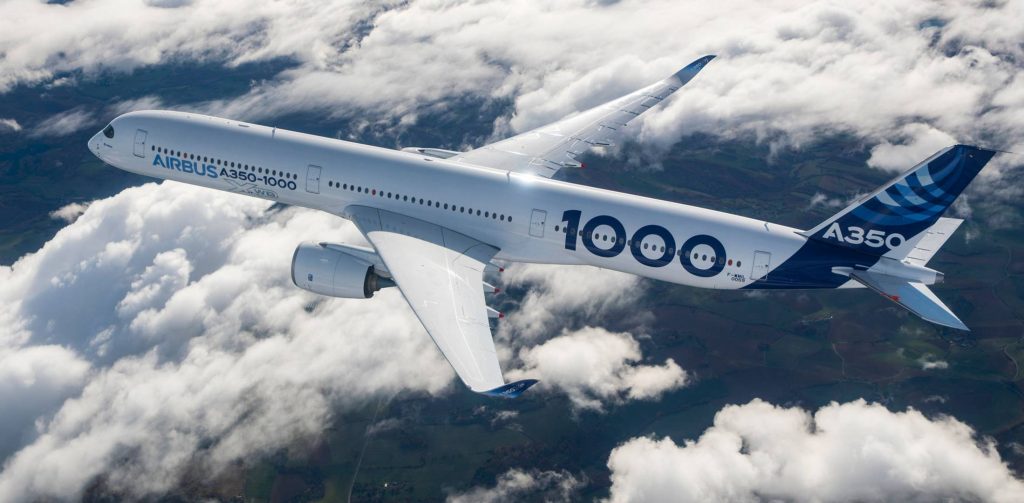Photo: ainonline.com
Reading Time: 2 minutesAirbus SE has reported half-year (H1) 2017 financial results and maintained its guidance for the full year. Order intake totalled €37.2bn (H1 2016: €39.1bn) with the order book valued at €981bn as of 30 June 2017 (year-end 2016: €1,060bn).
A total of 203 net commercial aircraft orders were received (H1 2016: 183 aircraft), with the order backlog comprising 6,771 aircraft at the end of June. During June’s Paris Air Show, 144 firm orders and 202 commitments were announced. Net helicopter orders increased to 151 (H1 2016: 127 net orders), including 30 H225Ms for Kuwait.
Defence and Space’s order intake was impacted by the perimeter changes from portfolio reshaping and some slowdown in telecommunication satellites. Good order momentum was seen in Military Aircraft with orders for 19 Light and Medium aircraft booked. Revenues were stable at €28.7bn (H1 2016: €28.8bn) despite the perimeter changes in Defence and Space. Commercial Aircraft revenues rose 3% with deliveries of 306 aircraft (H1 2016: 298 aircraft) comprising 239 A320 Family, 30 A350 XWBs, 31 A330s and six A380s. Helicopters’ revenues increased 9% with deliveries of 190 units (H1 2016: 163 units).
Revenues at Defence and Space reflected a negative impact of around €1.2bn from the perimeter changes. EBIT Adjusted – an alternative performance measure and key indicator capturing the underlying business margin by excluding material charges or profits caused by movements in provisions related to programs, restructuring or foreign exchange impacts as well as capital gains/losses from the disposal and acquisition of businesses – totalled €1,099m (H1 2016: €1,679m). Commercial Aircraft’s EBIT Adjusted was €954m (H1 2016: €1,269m), reflecting the aircraft delivery mix and phasing as well as transition pricing.
Good progress was made on the A350 industrial ramp-up with 30 deliveries compared to 12 in the first half of 2016. The A350 program is on track to meet the monthly production rate target of 10 aircraft by the end of 2018. The level of outstanding work has improved in the industrial system and supply chain bottlenecks are improving. In the second quarter, Qatar Airways cancelled four A350 delivery slots. The focus remains on recurring cost convergence.
On the A320neo program, 59 aircraft were delivered compared to eight in the first half of 2016. The A320neo ramp-up remains challenging and customers are still experiencing a number of in-service engine issues. Engine supplier Pratt & Whitney has introduced some fixes but these improvements have not come through yet on a reliable basis under normal service conditions. Close to 200 A320neo deliveries are still targeted for 2017 but this objective is more challenging given these engine issues.
Considering the current A380 order booking situation, 2019 deliveries will be adjusted to eight aircraft. As the basis for its 2017 guidance, Airbus expects the world economy and air traffic to grow in line with prevailing independent forecasts, which assume no major disruptions.

